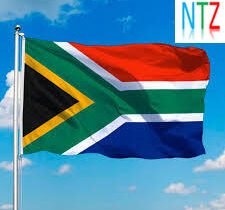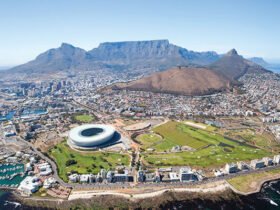Nelson Mandela is the African hero to remember, whose life spanned nearly a century, is one of the most iconic figures of the 20th and 21st centuries. His remarkable journey from a young activist fighting against apartheid in South Africa to becoming the country’s first black president and a global symbol of peace and reconciliation is nothing short of extraordinary. Here’s an overview of Nelson Mandela’s life
Early Life and Education:
Nelson Rolihlahla Mandela was born on July 18, 1918, in the village of Mvezo, in the Eastern Cape province of South Africa. He belonged to the Thembu royal family of the Xhosa ethnic group.
Mandela received his primary education from a local Methodist school and later attended Clarkebury Boarding Institute and Healdtown, where he was exposed to African nationalism and the ideas of self-determination.

Lawyer and Activist:
Mandela went on to study law at the University of Fort Hare and later at the University of Witwatersrand. He became involved in anti-colonial politics and joined the African National Congress (ANC) in 1943.
As a lawyer, Mandela provided legal counsel to black South Africans who faced discrimination and injustice under apartheid laws. He became increasingly involved in activism against apartheid policies, which enforced racial segregation and oppression of non-white South Africans.
Fight Against Apartheid:
Mandela’s activism against apartheid intensified in the 1950s, leading to his involvement in organizing nonviolent protests, strikes, and acts of civil disobedience. He played a key role in the ANC’s Defiance Campaign and the Congress of the People, where the Freedom Charter was adopted.
In 1962, Mandela was arrested and sentenced to life imprisonment for his involvement in anti-apartheid activities. He spent 27 years in prison, mostly on Robben Island, enduring harsh conditions and isolation. Despite his imprisonment, Mandela remained a symbol of resistance and resilience, inspiring a global movement against apartheid.
Release and Presidency:
Mandela was released from prison on February 11, 1990, amid growing international pressure and negotiations between the apartheid government and the ANC. He played a leading role in negotiations to dismantle apartheid and establish a democratic, multiracial South Africa. In 1994, Mandela made history by becoming South Africa’s first black president in the country’s first fully democratic elections.
He embarked on a mission of national reconciliation, promoting unity and forgiveness to heal the deep wounds of apartheid. Mandela’s presidency was characterized by efforts to address racial inequality, promote social justice, and foster economic development.
Legacy and Global Impact:
Nelson Mandela’s legacy extends far beyond his presidency. He was awarded the Nobel Peace Prize in 1993 for his role in ending apartheid and promoting reconciliation. Mandela’s commitment to forgiveness and reconciliation earned him admiration and respect worldwide, making him a global symbol of peace, justice, and human rights.
After retiring from politics, Mandela continued to be actively involved in charitable work, including HIV/AIDS awareness campaigns and the Nelson Mandela Foundation, dedicated to promoting social justice and human rights. He passed away on December 5, 2013, but his legacy continues to inspire people around the world to work towards a more just and equitable society.
Nelson Mandela’s life is a testament to the power of perseverance, courage, and moral conviction in the face of oppression and adversity. His unwavering commitment to justice and reconciliation has left an indelible mark on the world, reminding us of the transformative potential of forgiveness and compassion in the pursuit of peace and equality.








Leave a Reply